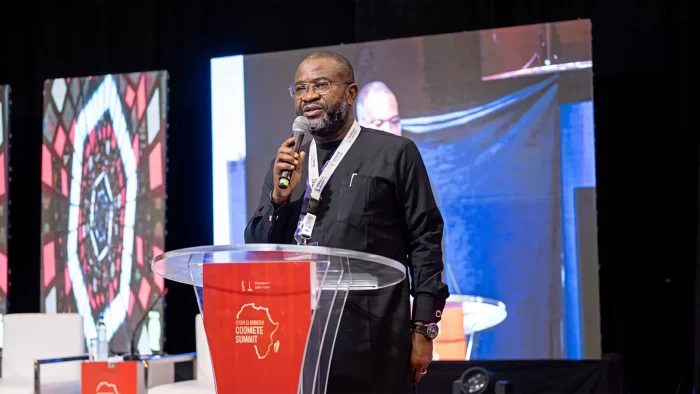
In continuation of our discourse on the business of filmmaking in Nollywood, it is pertinent to note this point: To build an industry, everyone involved needs to understand the destination and the direction to face in arriving there. To understand also means that there is a mental map so that we don’t run in circles or run into each other thinking we’re moving forward. To achieve this means that we have to interact with each other with a view to helping the growth of all of us. Competition is good, as long as it helps to stimulate growth and not stifle it. For instance, in an award where I’m being nominated for my role as a producer, actor, director or scriptwriter, nothing gives me more delight than to feel the real adrenaline rush of wandering if my performance as an actor, or work in any other capacity, will get the crown seeing those whom I’m competing with.
My win or loss fuels my devotion to do even better. If I win, I would love to continue having that good feeling, and if I lose, I would hate to feel that way again, so I improve myself either way. However, when I lose to someone far below the standard I delivered in any of the capacities I’m nominated, or even win over someone who, in my opinion, clearly trumps my performance, I don’t know what to do with that. Am I to improve by reducing my standard, if I lose, or should I not improve to the standard of the one whom I’ve just beaten, but is clearly better? That’s the dilemma that creates a lack of improvement that negatively affects the business of filmmaking.
This is where the power of the reward system is pertinent to building the industry. If there is a consistent reward for excellence, mediocrity takes the backbench, but if in the contrary, mediocrity takes centre stage. How does this have any bearing on the business of filmmaking? I’m glad you asked. Nollywood has grown in leaps and bounds in many ways but at the TURBO speed of a snail. Many of the players have remained on one level without much improvement because of the complacent attitude that says, “I’ve been doing this for so and so number of years, so how can you tell me what to do?” This attitude is fueled by many reward systems that still honour mediocrity rather than excellence. I believe it was due largely to our culture, and its deep-seated culture of giving praise to anything older (as a mark of respect), even in the face of glaring improvement. We have turned the logic around and now believe that “it is by age we acquire wisdom, and not by knowledge,” when the reverse, “it is by knowledge we acquire wisdom, and not by age,” that is the case.
[ad]
A child performs superbly, and as a mark of respect for the older ones, we create a category for the child actor because it would be ‘insulting’ to give them the awards for best actor over the older (egbon) actor. I was fortunate to encounter something unique during the shooting of my movie; the veteran and iconic actor, Richard Mofe Damijo, was so enthralled by the performance of the younger actor, Blossom Chukwujekwu, that he insisted I add more money to Blossom’s fees from his own fees. Wow! That gesture alone would give a boost to the younger actor who sees that he is improved and growing in the right direction because someone he respects has given him encouraging thumbs up. Is this not how ‘The Young Shall Grow?’
The improvements we desire from the actors, the directors, the gaffers (lighting person), the editors, in various roles and in the movie productions and storylines can be realized when the award systems also choose those who would help shape the right direction of the industry to win. I’m so proud of some of the younger artistes I see putting their best foot forward, refusing to be silenced, and putting their mark on the Nollywood stage, and these are being rewarded duly by the more credible award systems so far, but we need to do more there, and also in the technical areas of filmmaking. Every area we improve directly, by taking courses to further our knowledge, or indirectly, by rewarding excellence, adds value to the industry, helps to grow positive perception and ultimately improve the bottom line, the return on investments.
[ad]
The players in the industry should also see themselves as their brother’s keeper; showering accolades on those who do well, knowing that the more they speak good things about each other, the more they see positive improvements in the business of filmmaking generally. This is wishful thinking on my part, and I’m not so naive, but wouldn’t it be nice? Would it be so terrible to improve our behaviour towards each other, so we can make the profit that we so desire? Would it be so bad to reward excellence because the next person can look at those rewarded and fashion their own performance towards beating that? Would it be so inconceivable to hope for an industry that would compete in a level playing ground with those of our counterparts globally? I don’t think so!
The award systems have been persistently improving in their presentation, and some have lived up to expectations in certain aspects, but when the business of improving the industry, with a view to breaking more ground in returns in investment, is the focus, the rewards would definitely see a change for the better.
Every aspect of the chain in the industry has its impact on the whole, and dismissing any aspect takes its toll on the collective, one way or another. Till next week, keep smiling!








